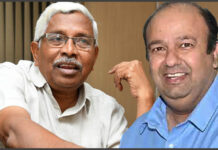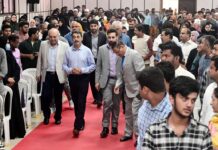
New Delhi: Leader of Opposition Mallikarjun Kharge, while participating in a discussion titled “Parliamentary Journey of 75 Years Starting from Samvidhan Sabha — Achievements, Experiences, Memories, and Learnings” in the Rajya Sabha, paid tribute to former Prime Minister Jawaharlal Nehru for his inclusive approach that took the opposition into account and laid the foundation of the Indian Constitution.
During the discussion, Kharge criticized the BJP-led government for its handling of unemployment in the country and the ethnic violence in Manipur. He questioned the government’s decision to shift parliamentary proceedings to a new building and urged for tangible changes rather than just a change in name.
Kharge also expressed concern over the speedy passage of bills without the involvement of parliamentary standing committees, alleging that the government was using agencies like the Enforcement Directorate and the Central Bureau of Investigation to weaken the opposition.
He pointed out that Prime Minister Narendra Modi has not visited violence-hit Manipur and criticized his absence in the House during opposition views and speeches beyond customary ones.
Kharge lamented the decline of parliamentary dialogue and compared it to the time when Nehru, the first prime minister of independent India, used to meet with opposition members to discuss key issues and patiently listen to parliamentary debates. He pointed out that Nehru even included an opposition party leader, Shyama Prasad Mukherjee, in his cabinet.
Kharge expressed concern that today, despite a strong opposition, the government was using agencies like the ED and the CBI to weaken them.
He highlighted the importance of Nehru’s role in laying the foundation of the Constitution upon which Parliament operates and emphasized the efforts of B.R. Ambedkar, the chief architect of the Constitution.
Kharge noted that during Congress’ regime, efforts were made to strengthen democracy and protect the Constitution, but now there is a fight to safeguard it.
He called for the passage of the Women’s Reservation Bill and drew attention to the issue of rising unemployment, which he argued could threaten democracy in the country.
Kharge also highlighted the low representation of women in Parliament and requested better visibility for opposition leaders during Rajya Sabha proceedings.





